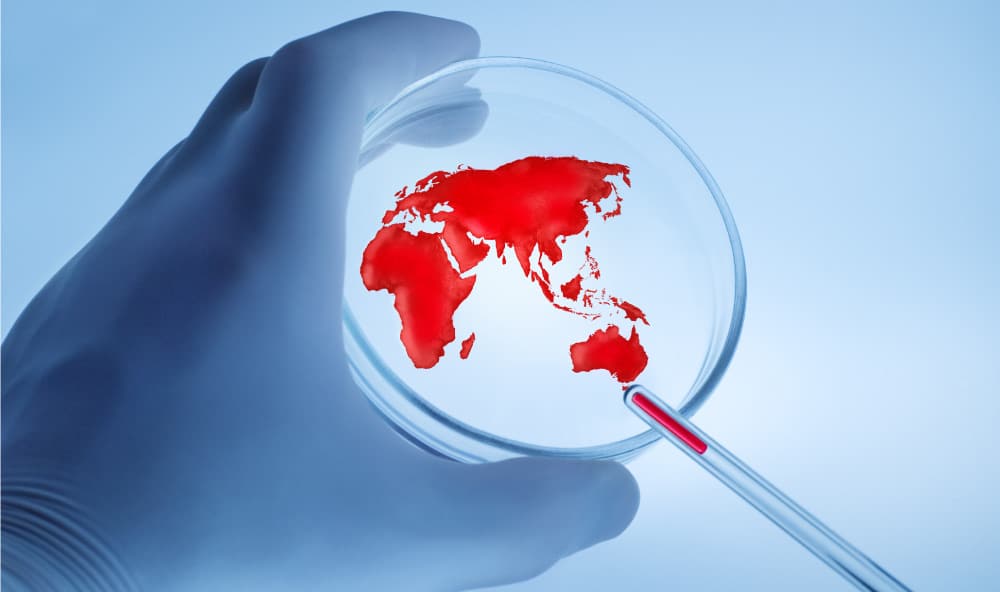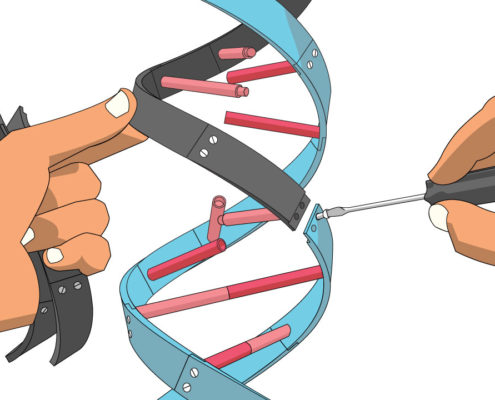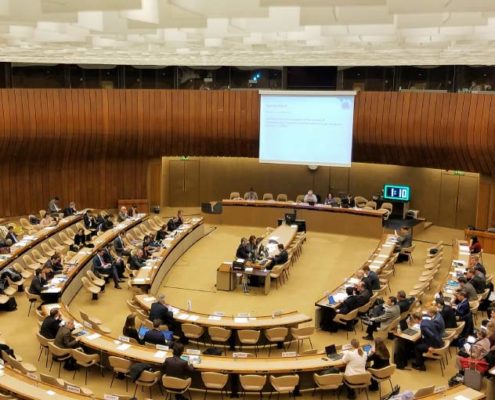Contents
FLI November, 2018 Newsletter
Genetically-Modified Babies, Biotech, and Updates on LAWS
Governing Biotechnology: From Avian Flu to Genetically-Modified Babies
with Catherine Rhodes
A Chinese researcher recently made international news with claims that he had edited the first human babies using CRISPR. In doing so, he violated international ethics standards, and he appears to have acted without his funders or his university knowing. But this is only the latest example of biological research triggering ethical concerns. Gain-of-function research a few years ago, which made avian flu more virulent, also sparked controversy when scientists tried to publish their work. And there’s been extensive debate globally about the ethics of human cloning.
As biotechnology and other emerging technologies become more powerful, the dual-use nature of research — that is, research that can have both beneficial and risky outcomes — is increasingly important to address. How can scientists and policymakers work together to ensure regulations and governance of technological development will enable researchers to do good with their work, while decreasing the threats?
On this month’s podcast, Ariel spoke about these issues with Catherine Rhodes, a senior research associate and deputy director of the Center for the Study of Existential Risk.
Topics discussed in this episode include:
- Gain-of-function research, the H5N1 virus (avian flu), and the risks of publishing dangerous information
- The roles of scientists, policymakers, and the public to ensure that technology is developed safely and ethically
- The controversial Chinese researcher who claims to have used CRISPR to edit the genome of twins
- How scientists can anticipate whether the results of their research could be misused by someone else
- To what extent does risk stem from technology, and to what extent does it stem from how we govern it?
You can listen to the podcast here, and follow us on SoundCloud, iTunes, Google Play, and Stitcher.
Benefits & Risks of Biotechnology
ICYMI: We recently published a new page highlighting where biotechnology is today and some of its benefits and risks.
This page covers everything you need to know about biotech, including: what it is, a very brief history of the field, some of the latest breakthroughs and mishaps, the risks of unintended consequences, the risks of weaponizing biology, the ethics of biotechnology, and helpful overviews of the four main tools of biotech: DNA Sequencing, Recombinant DNA, DNA Synthesis, and Genome Editing. And for those who want to learn more, we’ve included a very extensive list of resources at the end.
Giving Tuesday has passed, but if you’d like to help support FLI’s mission to ensure that technologies like advanced AI remain safe and beneficial, please consider donating here.
Recent Articles and Updates
Handful of Countries – Including the US and Russia – Hamper Discussions to Ban Killer Robots at UN
“We’re dismayed that could not agree on a more ambitious mandate aimed at negotiating a treaty to prevent the development of fully autonomous weapons,” said Mary Wareham of Human Rights Watch, coordinator of the Campaign to Stop Killer Robots. “This weak outcome underscores the urgent need for bold political leadership and for consideration of another route to create a new treaty to ban these weapons systems, which would select and attack targets without meaningful human control.”
US Government Releases Its Latest Climate Assessment, Demands Immediate Action
If climate change continues unabated, the assessment asserts that it will cost the U.S. economy hundreds of billions a year by the close of the century — causing some $155 billion in annual damages to labor and another $118 billion in damages to coastal property. In fact, the report notes that, unless we immediately launch “substantial and sustained global mitigation and regional adaptation efforts,” the impact on the agricultural sector alone will reach billions of dollars in losses by the middle of the century.
UPDATE: Time-Lapse Video of Cape Town Drought
Earlier this year, guest blogger Billy Babis wrote an in-depth article on Cape Town’s water crisis and its relation to global climate change and shifting weather patterns. We recently updated it with his time-lapse video of satellite imagery from NASA of one of Cape Town’s largest reservoirs.
What We’ve Been Up to This Month
Jessica Cussins and Richard Mallah attended the Partnership on AI “All Partners Meeting” in San Francisco on November 14 and 15. Jessica participated in the “Fair, Transparent, and Accountable AI” working group, while Richard gave a short talk on technical AI safety and participated in the “Safety Critical AI Working Group.”
Victoria Krakovna ran a session at EA Global London on the ML approach to AI safety, together with Jan Leike, at the end of October. They explored some of the assumptions and considerations that come up as they reflect on different research agendas. This blog post discusses the session.
Ariel Conn participated in the last meeting of the N Square Innovations Network for the first cohort. The original Cohort met with Cohort 2 at the Rhode Island School of Design to discuss how the next group will be able to continue to develop new approaches for reducing the nuclear threat.
Upcoming Event: Control and Responsible Innovation of Artificial Intelligence
How can we reap the benefits of AI and robotics while mitigating risks and undesirable societal consequences?
On December 4, policy recommendations from a major international Hastings Center project will be announced at a public event at the Carnegie Council for Ethics in International Affairs in New York City. The project, funded by FLI, was directed by Wendell Wallach, a scholar at Yale University’s Interdisciplinary Center for Bioethics.
FLI in the News
BLOOMBERG: Quicktake – Artificial Intelligence
FORBES: Education When Careers Are More Like Rock Climbing Than Ladders
INTERESTING ENGINEERING: 10 Essential TED Talks on Artificial Intelligence
INSIDE BIG DATA: A Chat on AI with MIT Professor Max Tegmark and Cheetah Mobile CEO Fu Sheng
If you’re interested in job openings, research positions, and volunteer opportunities at FLI and our partner organizations, please visit our Get Involved page.
Highlighted opportunity:
The Centre for the Study of Existential Risk (CSER) invites applications for an Academic Programme Manager.






